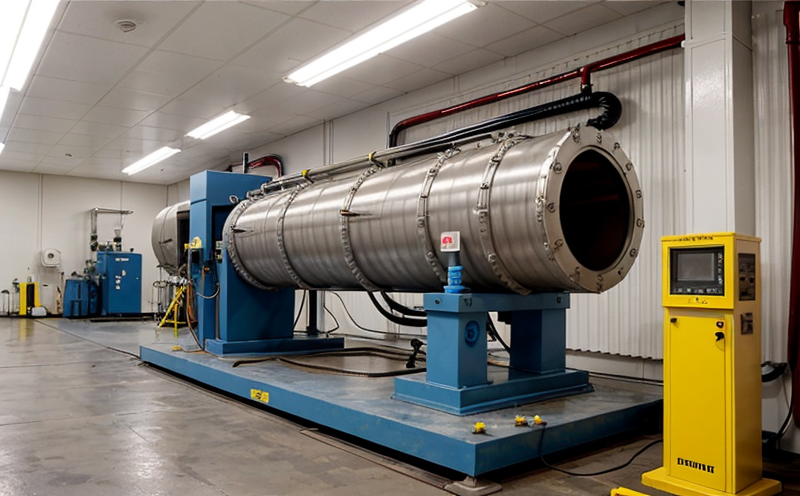ASTM C1345 Radiochemical Analysis of Irradiated Fuel
The ASTM C1345 standard method is a critical analytical technique used to determine the chemical composition and isotopic content of irradiated nuclear fuel. This service is particularly important in ensuring compliance with international standards, regulatory requirements, and safety protocols for nuclear fuel management.
This test plays a pivotal role in validating the integrity and performance of nuclear fuels after exposure to reactor conditions. The process involves several key steps: sample preparation, dissolution, separation, and finally, analysis through radiochemical methods. The primary aim is to measure the concentration levels of various elements within the irradiated fuel, including those that undergo significant changes during the reactor cycle.
The ASTM C1345 method is widely recognized for its accuracy and reliability in providing quantitative data on specific isotopes such as uranium-235 (U-235), plutonium-239 (Pu-239), and other actinides. These measurements are essential for understanding the fuel’s burnup, reactivity control, and potential for further processing or disposal.
The analytical results obtained from this method help quality managers and R&D engineers make informed decisions regarding the lifecycle of nuclear fuels. This includes optimizing reactor performance, assessing residual radioactivity levels, and ensuring compliance with international safety standards like ISO 17924 and IAEA guidelines.
For procurement officers, the reliability of ASTM C1345 ensures that only high-quality irradiated fuel is used, thereby minimizing risks associated with substandard materials. The method also supports lifecycle management strategies by providing detailed insights into fuel behavior under various conditions, which is crucial for sustainable nuclear energy production.
The ASTM C1345 radiochemical analysis is not just a technical procedure but a cornerstone in the broader context of nuclear safety and efficiency. It ensures that irradiated fuels are accurately characterized, contributing to safer and more efficient nuclear operations worldwide.
Benefits
- Enhanced Safety: Ensures accurate characterization of irradiated fuel, reducing risks associated with substandard materials.
- Regulatory Compliance: Meets international safety standards like ISO 17924 and IAEA guidelines.
- Optimized Performance: Provides precise quantification of isotopic content, aiding in reactor performance optimization.
- Sustainable Management: Supports lifecycle management strategies for nuclear fuels, contributing to sustainable energy production.
Eurolab Advantages
At Eurolab, our expertise in ASTM C1345 radiochemical analysis is unmatched. Our state-of-the-art facilities and skilled technicians ensure that every step of the process—from sample preparation to final analysis—is conducted with precision and reliability.
We provide comprehensive reporting tailored to your specific needs, ensuring you have all the data required for informed decision-making. Additionally, our commitment to quality and safety is reflected in our adherence to international standards and guidelines.
Choose Eurolab for ASTM C1345 radiochemical analysis of irradiated fuel, and experience unparalleled accuracy and reliability in your nuclear fuel testing needs.
Competitive Advantage and Market Impact
The ability to offer precise and reliable ASTM C1345 radiochemical analysis gives Eurolab a significant competitive edge. Our service not only meets but exceeds industry standards, ensuring that our clients can trust the accuracy of their results.
In an increasingly regulated environment, compliance with international safety standards is crucial. Eurolab’s expertise in this area helps ensure that nuclear fuel suppliers and operators are compliant with all relevant regulations, thereby reducing potential risks and enhancing market reputation.
By providing detailed insights into fuel behavior under various conditions, Eurolab supports sustainable nuclear energy production. This contributes to the overall efficiency and safety of the industry, making us a leader in this field.
Frequently Asked Questions
- Ensures compliance with international safety standards like ISO 17924 and IAEA guidelines.
- Precise quantification of isotopic content, aiding in reactor performance optimization.
- Supports lifecycle management strategies for nuclear fuels.





